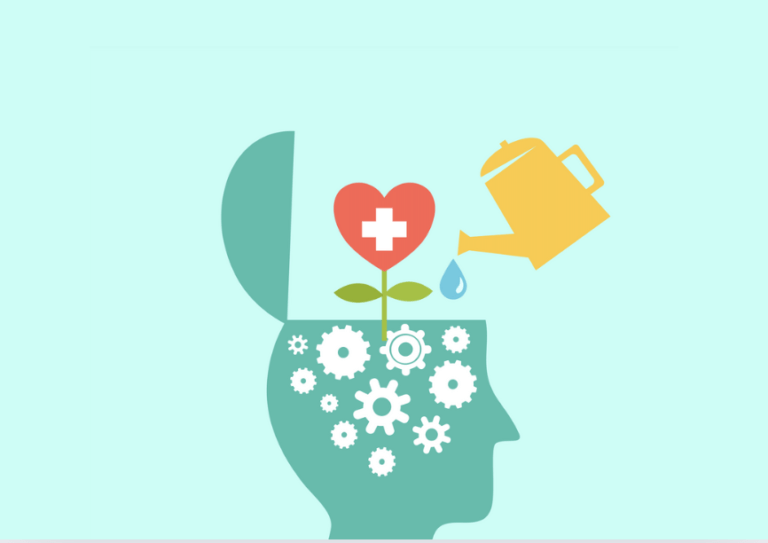
Mental Health & Wellness
by Kim Rapach
BStrong Together Former Vice-President of the Board
Download and print our Helpful Handout:
We’ve often been taught to view mental health as a binary condition: those with mental health issues (mental illness) and those without. However, this polarized perspective doesn’t align with how we approach physical health.
When we search online for “physical health,” we find images of people exercising, hydrating, and overall, looking happy. These visuals equate physical health with vitality and happiness. In contrast, searching for “mental health” often leads to images that highlight mental illness—crying, anger, or fear—rather than showcasing the broader spectrum of mental well-being.
Mental illness refers to diagnosable conditions such as anxiety, depression, or addiction. These are specific, often severe conditions that can impact one’s daily life and require medical or therapeutic intervention. Mental illness is a significant part of the conversation about mental health, but it represents only a small aspect of it.
Mental wellness, on the other hand, is a broader, more inclusive concept. It encompasses the overall state of our mental well-being and our ability to cope with everyday stress, maintain healthy relationships, and experience joy. Mental wellness is about maintaining a balance and nurturing our mental health, regardless of whether we have a diagnosed mental illness.
Just as physical health varies from person to person, influenced by factors like genetics, lifestyle, and environment, mental wellness also varies based on our experiences and background, as well as lifestyle. We don’t judge people for having physical ailments like asthma or arthritis, yet we often unfairly judge ourselves and others for mental health struggles.
While physical wellness has become a popular focus, with trends like keto diets and CrossFit, mental wellness deserves equal attention. Our mental health, like our physical health, is complex and multifaceted. We understand how to care for our bodies and seek medical advice when needed, but we often struggle to address our mental well-being in the same way.
When we experience physical pain, like a broken leg, we seek immediate medical attention. We don’t rely on positive thinking or distractions to heal us. Similarly, when facing emotional pain or stress, we should approach it with the same seriousness and seek appropriate support rather than just trying to “think positive” or escape through temporary fixes.
Life is challenging, and each of us carries unique burdens, whether related to finances, relationships, health, or other pressures. Not every struggle requires a mental health diagnosis, but every person has mental health that needs care and protection. Take care of yourself, physically, emotionally and mentally.
 Kim is a Licensed Clinical Social Worker, Certified Enneagram Coach, Financial Coach, Wellness Coach and founder of Kim Rapach Coaching.
Kim is a Licensed Clinical Social Worker, Certified Enneagram Coach, Financial Coach, Wellness Coach and founder of Kim Rapach Coaching.
Drawing on her extensive experience in personal and professional development, she specializes in supporting high-performing individuals in the creative and entertainment industries including artists, musicians, comedians, actors, authors, and influencers. She understands the unique challenges that accompany career success and possess a unique ability to uncover the hidden layers that may be hindering her client’s progress and offers unwavering support to alleviate their emotional burden and guide them toward becoming their healthiest and happiest self.
